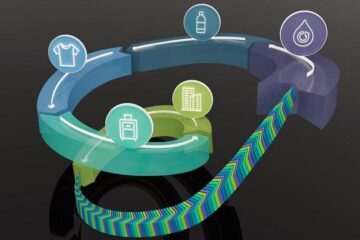Study reveals genetic link to colon cancer

Mutation indicates risk of acquiring disease
Researchers from the Samuel Lunenfeld Research Institute at Mount Sinai Hospital have determined that the mutation of a specific gene in some patients with colon cancer indicate a risk of acquiring the disease. The study appears in the Nov. 3 edition of the Journal of the National Cancer Institute. The research team, led by Dr. Steven Gallinger used a population based study to determine that when one parent had the MutY human homologue (MYH) gene and there was also a family history of acquiring the disease then it may account for a fraction of hereditary colorectal cancers.
The child of a couple that has one MYH gene carrier has a 1:2 risk of carrying the mutation and this translates into increased risk of developing the disease. “This is going to contribute to new knowledge of colon cancer and it may impact who goes for testing,” said Dr. Gallinger, a researcher and surgeon. He is also a professor of surgery at the University of Toronto.
The study suggests this information to be used in the identification of potential high risk cases to see if screening and further testing of the patient and family members is required. This research builds on previous studies that suggest the child of a couple where both parents are carriers has a 1:4 chance of developing a severe form of colon cancer. As many as 20 per cent of colorectal cancer patients have a family history of the disease.
The population based study followed 1238 patients with colorectal cancer and 1255 healthy control subjects from Ontario. Compared to non-carriers, the MYH gene carriers had a higher risk of acquiring colorectal cancer.
Media Contact
More Information:
http://www.utoronto.caAll latest news from the category: Life Sciences and Chemistry
Articles and reports from the Life Sciences and chemistry area deal with applied and basic research into modern biology, chemistry and human medicine.
Valuable information can be found on a range of life sciences fields including bacteriology, biochemistry, bionics, bioinformatics, biophysics, biotechnology, genetics, geobotany, human biology, marine biology, microbiology, molecular biology, cellular biology, zoology, bioinorganic chemistry, microchemistry and environmental chemistry.
Newest articles

Novel genetic plant regeneration approach
…without the application of phytohormones. Researchers develop a novel plant regeneration approach by modulating the expression of genes that control plant cell differentiation. For ages now, plants have been the…

Roadmap to close the carbon cycle
A holistic approach to reach net-zero carbon emissions across the economy. A major approach to achieving net-zero carbon emissions relies on converting various parts of the economy, such as personal…

Cost-effective, high-capacity, and cyclable lithium-ion battery cathodes
Charge-recharge cycling of lithium-superrich iron oxide, a cost-effective and high-capacity cathode for new-generation lithium-ion batteries, can be greatly improved by doping with readily available mineral elements. The energy capacity and…





















